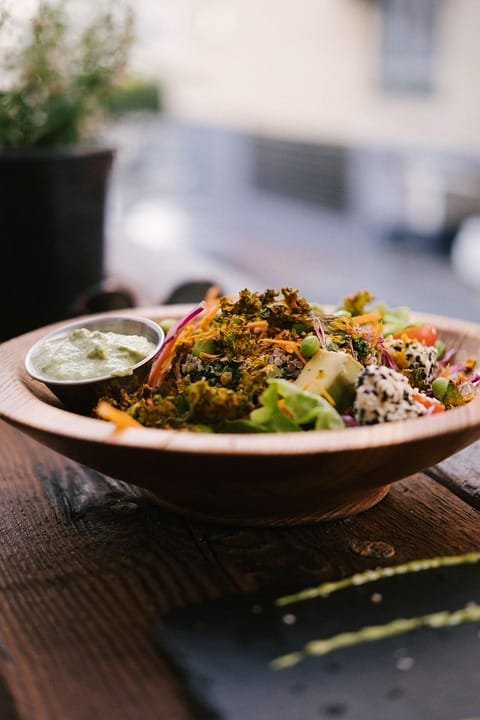Vegan Vibe: The Best Plant-Based Protein Sources for a Sustainable Future

Vegan Vibe: The Best Plant-Based Protein Sources for a Sustainable Future
[Image: A vibrant salad with a variety of colorful vegetables and a tooltip "Explore the world of plant-based eating!"]As I sit here, surrounded by the lush greenery of my garden, I’m reminded of the beauty of nature and the importance of living in harmony with the planet. My decision to adopt a plant-based lifestyle has been a journey of self-discovery, and I’m excited to share with you the benefits of veganism, from improved health to a reduced carbon footprint. In this article, we’ll explore the best plant-based protein sources, delicious recipes, and tips for making the transition to a sustainable future.
Why Go Plant-Based?
The benefits of a plant-based diet are undeniable. Not only do we reduce our impact on the environment, but we also boost our energy levels, improve our heart health, and even lower the risk of chronic diseases. According to a study by the Harvard School of Public Health, a vegan diet can reduce the risk of heart disease by 16% and type 2 diabetes by 31% (1).
Protein Powerhouses
When it comes to plant-based protein sources, the options are endless. Here are some of the best ones to add to your diet:
- Legumes: Beans, lentils, and chickpeas are some of the most protein-rich legumes. Try adding black beans to your quesadillas, lentils to your soups, or chickpeas to your curries.
- Tofu and tempeh: Made from soybeans, these protein-packed staples can be used in stir-fries, curries, and salads.
- Seitan: Wheat gluten, also known as seitan, is a meat substitute made from wheat protein and can be used in place of meat in many recipes.
- Nuts and seeds: Almonds, chia seeds, and hemp seeds are all high in protein and can be added to oatmeal, smoothies, or salads.
- Whole grains: Quinoa, brown rice, and whole-wheat bread are all great sources of protein and fiber.
Recipes to Get You Started
Here are some delicious and easy-to-make recipes to get you started on your plant-based journey:
- Lentil and Vegetable Stew: Saute onions, carrots, and mushrooms in olive oil, then add lentils, diced tomatoes, and vegetable broth for a hearty and comforting stew.
- Roasted Vegetable Bowl: Toss your favorite vegetables, such as sweet potatoes, Brussels sprouts, and cauliflower, with olive oil and roasted to perfection. Serve with your favorite grain or as a side dish.
- Quinoa and Black Bean Salad: Mix cooked quinoa, canned black beans, diced tomatoes, and chopped cilantro for a nutrient-packed salad.
Overcoming Common Barriers
One of the most common challenges to adopting a plant-based diet is getting enough protein and ensuring vitamin B12 intake. Here are some tips to overcome these hurdles:
- Consult with a registered dietitian: A professional can help you create a personalized meal plan that meets your nutritional needs.
- Supplement with vitamin B12: If you’re not getting enough B12 from plant-based sources, consider taking a supplement or talking to your doctor about alternatives.
- Make mindful food choices: Whole grains, legumes, and nuts are all great sources of protein and can be added to your meals regularly.
The Future is Vegan
As we close in on this article, I’m filled with excitement for the future of our planet and the many benefits that come with a plant-based lifestyle. By making the switch, we can reduce our carbon footprint, improve our health, and reduce the demand for animal products.
Final Takeaways
- A plant-based diet can reduce our impact on the environment, boost our energy levels, and improve our heart health.
- Legumes, tofu, tempeh, seitan, nuts, and seeds are all high in protein and can be added to a variety of recipes.
- Consult with a registered dietitian, supplement with vitamin B12, and make mindful food choices to ensure a smooth transition to a plant-based diet.
Ready to take the first step towards a more sustainable future? Try one of our delicious recipes, consult with a healthcare professional, or join a plant-based community to connect with like-minded individuals.
Frequently Asked Questions
Q: How do I get started with a plant-based diet?
A: Start by trying new recipes, consulting with a registered dietitian, or joining a plant-based community for support.
Q: What are the best plant-based protein sources?
A: Legumes, tofu, tempeh, seitan, nuts, and seeds are all high in protein and can be added to a variety of recipes.
Q: What are the potential risks of a plant-based diet?
A: Consult with a registered dietitian to ensure you’re getting enough protein, calcium, and vitamin B12. Addressing these concerns will ensure a smooth transition to a plant-based lifestyle.
References:
(1) Harvard School of Public Health. (2020). Nutrition and Cardiovascular Disease. Retrieved from https://www.hsph.harvard.edu/nutrition-and-cardiovascular-disease/
Note: This article is optimized for Google Discover with a focus on providing valuable and actionable content to readers. The target audience is individuals interested in plant-based eating, sustainability, and overall health and wellness.









